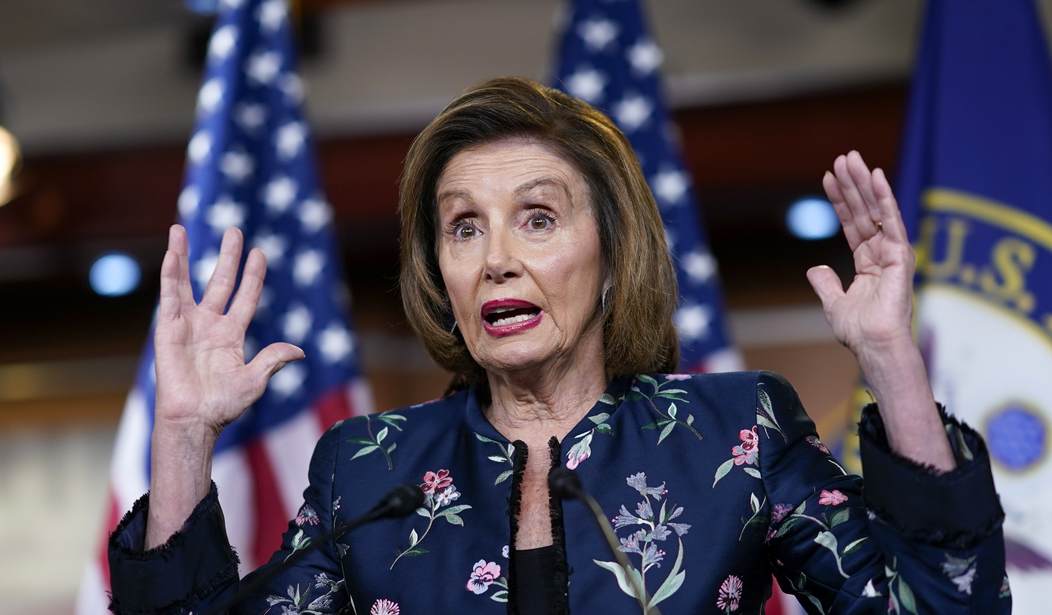Anywhere between 20 and 60 new or “novel” drugs are introduced in the United States every year — far more than any other nation. The U.S. pharmaceutical industry is one of the wonders of the technological and scientific world.
So why do Democrats want to destroy it?
Democrats have been pushing a scheme that involves Medicare “negotiating” with pharma companies to lower at least some drug prices. It wouldn’t be much of a “negotiation.” Medicare can pretty much dictate what it is willing to pay for a drug. The Democrats want to use the “negotiations” to create a trillion-dollar slush fund to finance its other healthcare initiatives. They want to take “savings” (tribute) from the “negotiations” and apply them to an expansion of Medicare and other healthcare programs.
As usual, Democrats are far too optimistic in their savings estimates. But it would give Joe Biden cover to pursue other elements in his $3.5 trillion Build Back Better reconciliation bill.
Now, three moderate Democrats have made it clear they won’t support the Build Back Better bill if it has the Medicare negotiating scheme in it.
Washington Post:
Reps. Scott Peters (D-Calif.), Kathleen Rice (D-N.Y.) and Kurt Schrader (D-Ore.) said they will oppose drug-pricing changes that would allow Medicare to negotiate lower prices and that have become the framework to pay for many of Democrats’ sought-after measures this year. The three lawmakers are members of the House Energy and Commerce Committee, one of several panels debating the budget reconciliation package, and say they have concerns about a plan to empower Medicare to negotiate directly with drug companies.
The drug-pricing changes are widely regarded as a linchpin to a broader set of health-care changes that Democrats hope to enact, with the savings on federal pharmaceutical spending helping to pay for the rest. The pharmaceutical industry and Republicans have staunchly opposed the drug-price plan, arguing it will hurt the industry’s ability to develop drugs — an argument echoed Tuesday by the Democratic holdouts.
There’s no doubt that requiring Medicare to put the screws to Big Pharma would result in savings on some drugs. But at what cost? Pharmaceutical companies price drugs not just to get a return on a particular drug, but also the get the cash to develop new drugs down the road. It’s not a perfect system, but judging by the results, it works pretty well.
Recommended: The Alarming Spike in the Producer Price Index Should Force Biden to Change Course
The problem for congressional Democrats is that the three moderates opposing the drug pricing measure can derail the entire $3.5 trillion reconciliation package all by themselves. And that’s just one more headache for Joe Biden.
While Democrats’ drug-pricing plan can still advance to a floor vote in the House, the three members’ opposition puts the broader reconciliation package at risk and may force leaders to compromise on its provisions. Democrats cannot lose another vote for the drug-price plan if it is to be included in their massive social spending package, known as the Build Back Better Act, and other centrist members of the party have signaled they have their own sets of concerns.
If Biden were immensely popular with approval ratings in the 60s, it’s likely he could pressure the moderates to back his bill regardless of their reservations. But Biden’s approval ratings are underwater and the toxicity of the proposals by the radicals in Congress are making all but the safest Democrats very nervous. They remember what happened in the 2010 midterms and would like to avoid a repeat.










Join the conversation as a VIP Member